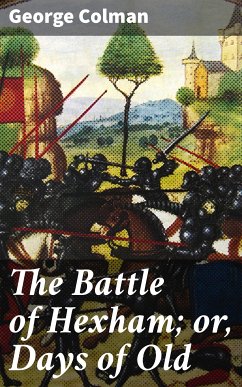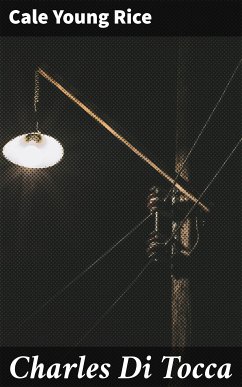
Ormond (eBook, ePUB)
Love, Betrayal, and Social Dynamics in Post-Revolutionary America: A Gothic Tale of Romance and Mystery

PAYBACK Punkte
0 °P sammeln!
In "Ormond," Charles Brockden Brown delves into the complexities of identity, morality, and the psychological undercurrents of early American society. The novel unfolds through a rich tapestry of Gothic elements, combining suspense with a philosophical exploration of Enlightenment themes. Brown's prose is notable for its psychological depth and intricate character development, reflecting the era's anxieties around reason versus passion. Set against the backdrop of a burgeoning nation, "Ormond" critiques societal norms while navigating the labyrinthine landscapes of emotional and existential tu...
In "Ormond," Charles Brockden Brown delves into the complexities of identity, morality, and the psychological undercurrents of early American society. The novel unfolds through a rich tapestry of Gothic elements, combining suspense with a philosophical exploration of Enlightenment themes. Brown's prose is notable for its psychological depth and intricate character development, reflecting the era's anxieties around reason versus passion. Set against the backdrop of a burgeoning nation, "Ormond" critiques societal norms while navigating the labyrinthine landscapes of emotional and existential turmoil. Charles Brockden Brown, often hailed as the first American novelist, was deeply influenced by the intellectual currents of his time, particularly the debates around democracy, individualism, and the human condition. Having experienced personal loss and political upheaval, Brown's works frequently examine the tensions between personal desire and societal expectations. "Ormond" stands as a testament to his innovative narrative techniques and his engagement with Enlightenment ideals, positioning Brown as a key figure in the evolution of American literature. Engaging and reflective, "Ormond" is highly recommended for readers interested in the intersection of Gothic literature and American philosophical thought. Its exploration of the darker aspects of human nature and the societal constraints of the 18th century offers valuable insights into the complexities of identity. This novel is not only a compelling narrative but also a profound commentary on the shaping of American identity.
Dieser Download kann aus rechtlichen Gründen nur mit Rechnungsadresse in A, B, BG, CY, CZ, D, DK, EW, E, FIN, F, GR, H, IRL, I, LT, L, LR, M, NL, PL, P, R, S, SLO, SK ausgeliefert werden.













